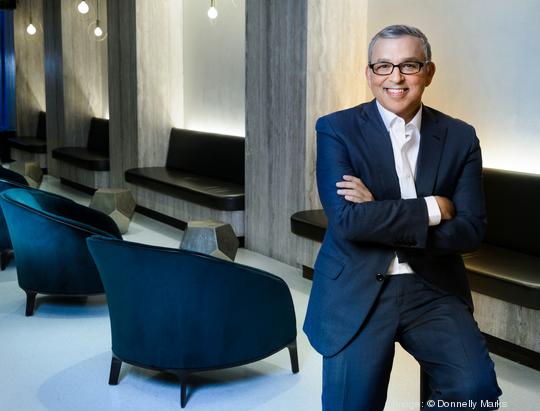
Amid a rapidly evolving and volatile job market, it’s important for companies to ensure they’re meeting and exceeding the expectations of the tech talent of today and tomorrow. Employers are revisiting strategies on how and who to hire, while workers, especially those entering the workforce, reconsider their priorities in their job search.
This is particularly true for tech, which, despite a few cool downs this month, continues to demonstrate industry-specific resilience and commitments to hiring. In fact, tech job openings in the state are up 60% from last year, according to recent data the NC Technology Association. What’s more, the Bureau of Labor Statistics has projected STEM jobs to grow by more than 10% by 2030.
As one of the major tech employers in North Carolina, at MetLife we understand the power of technology and its impact on the customer experience. It’s a differentiator. It’s also a space where employers need to double down to attract and retain talent, especially when it comes to those entering the workforce. That’s why it’s important for employers to understand how young tech employees who are already in the workforce are setting the pace and expectations for recent graduates.
Here are three considerations for companies looking to recruit the best and brightest in tech.
Purpose/Meaningful Work
New MetLife research shows that loyalty and job satisfaction is low among young employees (21–30-year-olds) in the tech sector. Thankfully, the same research cites purpose as a key retention driver among this younger employee cohort – with 58% of workers calling it a “must-have.”
Employees need to understand “the why” behind their work. They must feel that what they do has meaning and impact, while connecting to a bigger picture.
Whether employees are on the frontlines answering customer calls or behind the scenes writing code, they have to recognize the role they play in delivering on company commitments. By creating a culture where everyone is working toward a common purpose, employees know their role, are empowered to do their best work, and make a difference.
Career and Development Training
In a tight labor market, many employees are serious about growing and advancing their careers – and they are looking for employers who will support them. MetLife studies have shown that the number of workers who view development, training, and advancement opportunities as critical when considering a new position has grown by 8% since 2020.
That means employers have an opportunity to drive a contemporary workforce through skills development, career pathing and culture. Those that invest in this space will be uniquely positioned to attract talent — and, most importantly, keep it for the long term. Even more, employers are uniquely situated to use the power of technology to help employees bring their aspirations to life. Take MetLife’s MyPath tool as an example, which helps us connect employees to projects and opportunities based on their skills, experiences and career goals.
Diversity, Equity and Inclusion Programs & Support
DEI initiatives are imperative in the tech sector today, as employees, particularly those from younger generations, increasingly look to employers to strengthen workplace cultures and cultivate an atmosphere of inclusion. In fact, our data shows that 46% of young workers in tech (21–30-year-olds) say DEI programs and/or affinity groups are “must-haves” – versus only 17% of those over 50 years old.
A commitment to diversity, equity and inclusion starts at the top. It needs to be embedded in the fabric of the organization and everyone has to walk the talk.
To stand out in this space, companies should be intentional about nurturing the pipeline of diverse talent; provide mentoring, coaching and sponsorship opportunities; and, most importantly, remove roadblocks for those in underserved and underrepresented populations. Affinity groups also play an instrumental role in helping employees create connections and support networks that advance their career and maximize their potential.
Employers that embed purpose, create meaningful career paths and put DEI at the center will not only have an advantage in recruiting and retaining the tech talent of tomorrow, but they’ll also create an atmosphere and culture that’s attractive to employees at every stage of their career journey, a true win-win.
Bill Pappas is MetLife head of Global Technology and Operations.



